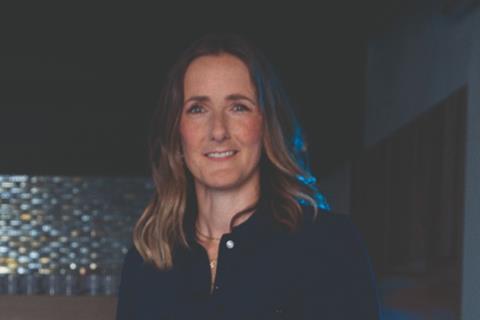The lifting of pandemic restrictions in wider society is not being reflected in TV production, leading workers to feel an “unjustified sense of bureaucracy and dictatorial standards”, according to Banijay UK chief exec Lucinda Hicks.
During a virtual RTS Mental Health in Film and TV Production After Covid event last week, Hicks was joined by Bectu head Philippa Childs, chief exec of the Film & TV Charity Alex Pumfrey and production co-ordinator Alicia Dalrymple to discuss the current state of mental health in the industry as it emerges out of the pandemic.
Watch the session above
Hicks said that while freelancers understand the rationale behind the protocols and are “amazing” at following them, there is some resentment at being stuck in a “production bubble” while their family and friends return to less restrictive ways of working as testing and physical distancing protocols ease.

“You haven’t seen your family for weeks on end, you can’t socialise and the schedules are even longer than they were,” she said. “We’re heading in the right direction but we have to be realistic about how long [working protocols] are going to continue.”
A consultation is currently underway around updating the TV Production Guidance surrounding Covid protocols, with an update expected within weeks.
Pumfrey pointed to the Film & Charity’s Looking Glass report ’21, which found that half of those working in production have felt a negative impact on their mental health as a result of Covid safety protocols, but considers that more open conversations are being had around mental health with an “emerging belief” that things are changing.
“The industry really needs to walk the walk as well,” she added. “Real structures and support need to be put in place to improve people’s mental health and wellbeing.”
Pumfrey acknowledged that much of the report’s findings makes for difficult reading as “many aspects of culture within the industry remain really problematic.”
This includes the findings that 57% of respondents have experienced bullying in the workplace, while 67% of the 2,000 survey respondents had witnessed such behaviour. Four in 10 black, Asian and minority ethnic respondents have experienced racial harassment or behaviour, while just one in 10 people said reporting such behaviour improved things.
Bectu’s Childs recognised that freelancers feel more vulnerable when it comes to reporting problems, with full-time staff “more comfortable” raising issues. She considers job security to be hugely important for helping to ensure good mental health.
“It isn’t an insurmountable problem. The industry wants to do better and we all agree that it should. There are things that can be put in place that we can all work together on to create a better environment and start to turn around some of these statistics,” she said.
Hicks added that one way to ensure a mentally-safe working environment is to have kick-off meetings at the start of each project where expectations are set around appropriate behaviour on-set and how people can raise issues and access support.
“We’re trying to make everybody accountable and encourage things to be tackled at a lower level rather than via the escalation process,” she said.
Banijay remains committed to ensuring problems can be escalated but is aware that the introduction of unfamiliar senior staff can feel “intimidating”.
Production co-ordinator Dalrymple agreed with this, adding that accountability is important on a set, and that people need to be made comfortable raising any concerns.
”We have to trust in the process of an investigation, although that’s always easier said than done,” she said.
Lessons around inclusion and representation can be organically built into a production, said Hicks, citing the example of Dragonfly’s upcoming Then Barbara Met Alan factual drama which tells the story of how the Direct Action Network was formed in the 90s. It had a “very large level” of disability representation on and off-screen, she said.
“Dragonfly put together a report of all the lessons and recommendations, including things like access coordinators and list of accessible facilities and training schemes and so on. If we can keep sharing lessons like that…and including things like that absolutely, [we can accommodate it in the production budget].”
This story first appeared on Screen’s sister site Broadcast.

























No comments yet